This from an interview with Clayton Eshleman on Bookslut:
Do you think the [MFA] programs make poets better writers?
No. I think a poet has to educate himself, or as Artaud put it, has to initiate himself off himself. He has to discover those poets from whom he can learn primary things about the art of poetry and he has to figure out the few poets in his generation that he wants to be in touch with, his “generation,” so to speak. And what to read. … None of the poets that today mean the most to me were even mentioned in the literature classes at Indiana University — possibly Hart Crane and Wallace Stevens are exceptions here. And as I mentioned earlier, Jack Hirschman introduced me to 20th century European poetry and my painter friend Bill Paden gave me the New Directions anthology in which I discovered Neruda and Vallejo. Had I depended on the Indiana University English Department for sources I would be a lost soul today.
Some years ago, a graduate student in the University of Michigan MFA program called me up. He had discovered one of my Black Sparrow Press books in an Ann Arbor bookstore, liked what he read in it and found that I was living 6 miles away, in Ypsilanti. So I invited him over. He had been in the Michigan program for two years. I quickly discovered he had never heard of Charles Olson, Robert Duncan, Jack Spicer, Jackson Mac Low, Muriel Rukeyser, Adrienne Rich, César Vallejo, Aimé Césaire, Antonin Artaud, Paul Celan, or people like [Robert] Kelly and [Jerome] Rothenberg in my generation. At a certain point, he was sitting in our living room, madly writing down names and increasingly upset that he had to come to Ypsilanti to hear about them!
*
Effing Press and Skanky Possum announce the publication of Amiri Baraka’s recent talk on Ed Dorn.
*
Dale Smith reviews the new collected Jack Spicer, My Vocabulary Did This To Me.

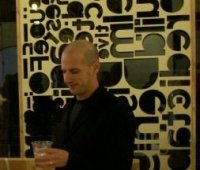
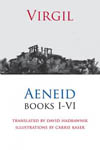
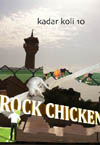
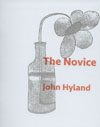

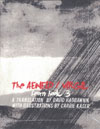
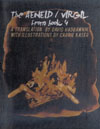
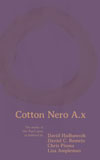
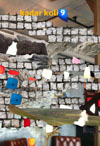
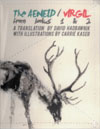
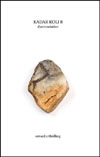
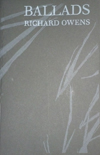
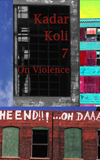
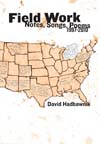
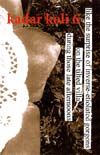
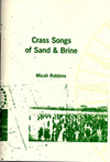
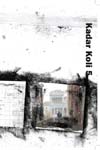
Of course, a poet can’t “hear” of everyone…there are so many poets that one is bound to be constantly over-looking great writers, and it’s not like this list of poets mentioned is conclusive in anyway or would be a list most poets would compile of essential writers, so, in that respect, I can’t be shocked that some random poet has not heard of other random poets, since there are many random poets. Though, that particular list contained enough big names that, I guess, young poet man should have heard of them. Maybe he wasn’t reading at all, or, if he was merely relying on teachers to tell him what to read, he’s already an idiot.
I’m of two minds on this. I agree that, depending on what program you’re in, you can receive a narrow education and only be exposed to those poets whom the professors like. On the other hand, regardless of whether you’re in an MFA program, it’s still your responsibility as a writer to seek out books and poets and to educate yourself. You should be doing that at all times anyway and should be aware that a handful of poetry teachers are going to expose you to what they’re familiar with. This is no surprise or secret. There are just too many poets in print to cover all the bases.
And no, I don’t think you need an MFA to become a good writer. Not sure which program Shakespeare attended (Iowa?). However, there’s nothing really wrong with spend 2-3 years working on your craft with several other writers in close proximity. Sure, you can do that elsewhere, but the intentional immersion (though not priceless, indeed pricey) involves an act of committment that can force you, in ways not otherwise possible for you, to get serious.
That, and, the market value for an MFA in creative writing is growing. I hear GM is hiring poets to design the lines of their new hybrids. (A previous experiment was conducted with poets working on the Nissan Stanza.)
Andrew
Sign me up. There’s still at least one big 3 plant in the area that makes stuff — axles or drive trains or something.
I don’t know that i feel one way or the other about this; just thought i’d post it because it’s interesting. i do look back — not in anger — and wonder about certain elements of the MFA process. i think there’s a push and pull between wanting to give students time to write and doing the real apprentice work, of which writing is only a part. poets and writers in general tend to be myopic about their reading habits, and MFA programs (in a very general sense) only seem to encourage that. of course depending a lot on the individual student and the program and the path the student takes through the program.
Seems impossible to be anything but myopic, since there is so much poetry to read and only so much time. Though I suppose you could sample from enough different “schools” or approaches to have a broad reading list. Guess it depends on how far opia-ed your my is.
Though I think there is a place for myopia. That is, the kind of writer who finds his few interests and becomes so obssesively attached to them that he must force his way out and in so doing, create his own version or reaction to that work. I’m thinking of Berryman’s love of Shakespeare, or Blake and Swedenbourg, or Ray Carver and Earnest Hemingway, and of course there are a million others. These writers all read lots of other stuff, sure, but there were certain writers they got caught on and wrestled with and were probably myopic about.
Some of this is human nature. I think it takes a lot for anyone, especially stubborn people like writers, to get out of their comfort zone and read new things. All people are like this. Especially when something new takes time to adjust to and there’s only so much time in our hurried lives that waiting for something new to sink in before proceeding is harder than going back to comfy stuff.
i think there’s a place — even a necessity — for putting the blinders on at some point and realizing, this is where my gold is. i don’t need to keep digging lots of superficial holes everywhere else. but let’s not discount the value of all those little holes, is all i’m saying. and i wonder — is it really impossible to read “everything”? it depends on your definition of everything, i suppose, as you suggest. if one applies poundian standards to all of literature and goes only for the best, the epoch-defining and paradigm-shifting works, supplementing that with the “merely” masterful and not getting bogged down with brilliant but minor stuff, you can do that with some sense of completeness in 10 years I would say. you can never do everything. though gertrude stein claimed to have read everything that had ever been written in english.
From inside the evil empire, I say that the best a professor can hope for is that MFA poets have the desire to read outside their own comfort zone and practice. This is not as common as one might think.
An empire must have real power in order to be an empire. Poets, even the A-lister’s, are really more like side(freak)shows in the grand scheme of things.
But “evil,” yes, I’d say that applies. I was shocked when the professor sacrificed a live chicken during my first workshop. He said the virgin was next week so I dropped. Then I warned the virgin. She said, “There’s nothing I can do. They’re poets. Tell my kids I love them.” And I said, “If you’re a virgin, how come you have kids?” And she said, “Poetry is magic.”
Anyway, if Stein meant reading books like she intended many of hers to be read, glanced over the surface to notice the repetition and pretty words, then I suppose she could have read everything. If you take into account multiple dimensions, somewhere a “you” exists that has read everything. But then again somewhere a “you” exists that has a chicken beak and eats moon rocks, you know.